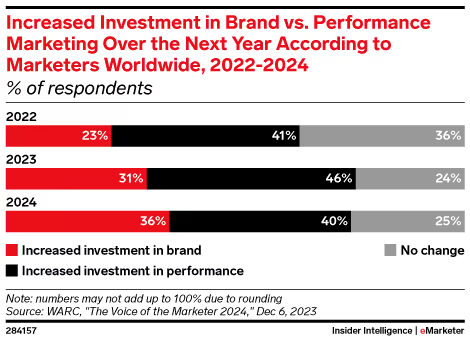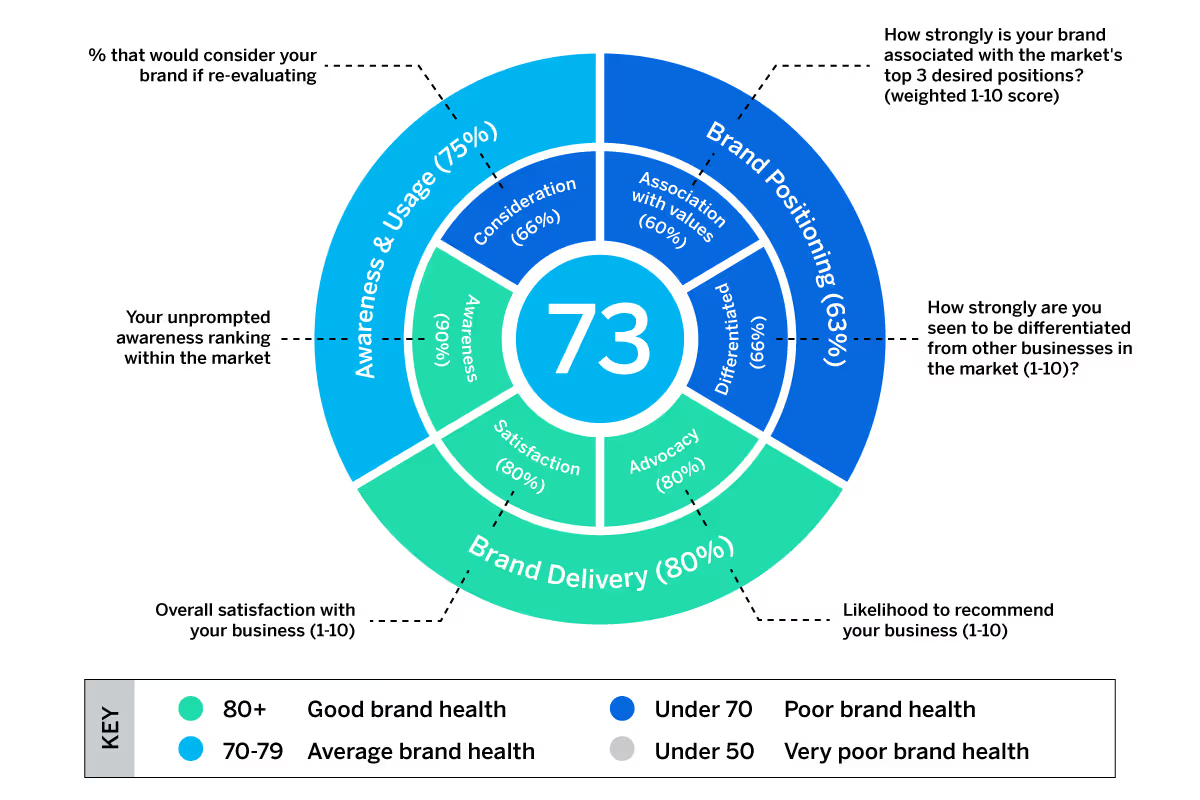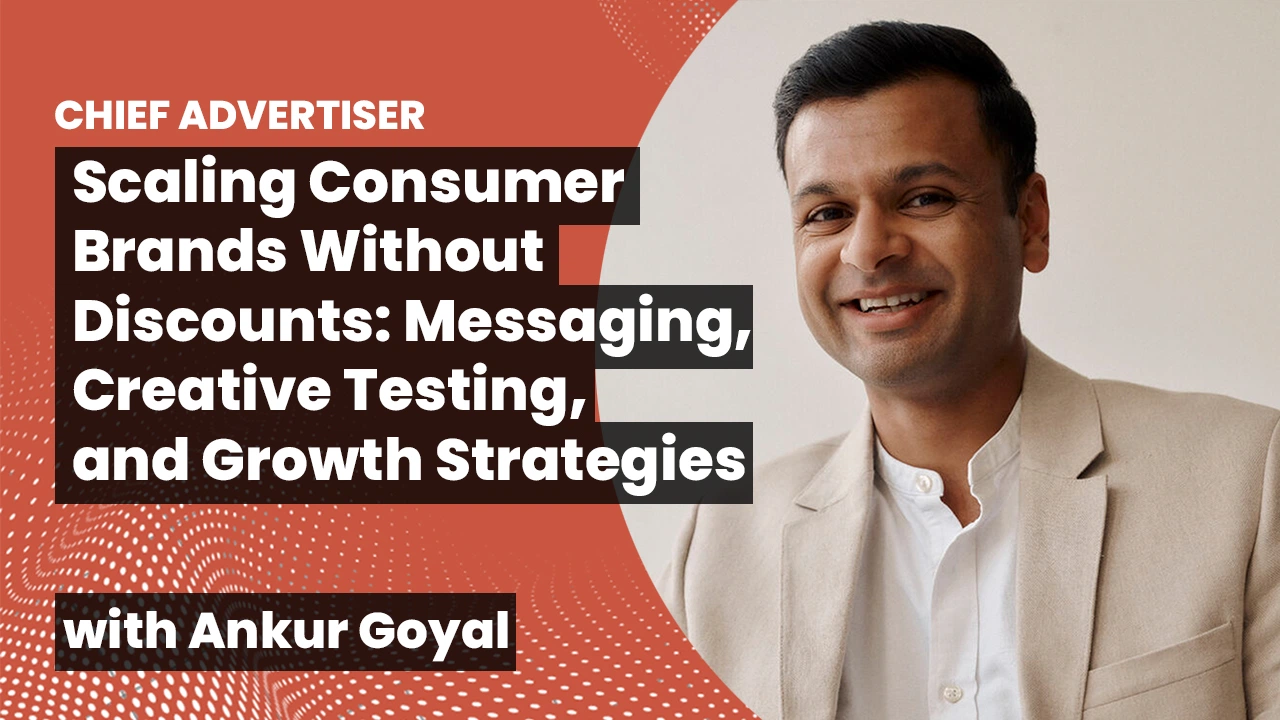Over the past few years, we've seen brands explode thanks to Facebook and Google ads. The platform's ability to drive measurable returns for a brand gave marketers and finance partners the confidence to invest in the channel continually. Most brands shifted their budgets to focus on performance marketing at the expense of brand marketing.
As performance marketing results have started to decline and measurement has become more complicated, marketers are beginning to question if it's the best investment for the long-term growth of a brand.
What is the problem?
When marketers started focusing only on performance marketing and direct response campaigns, they shifted their budget and attention away from other marketing channels.
The dominance of performance marketing has led to three critical bad habits:
- Loss of true marketing innovation
- A focus on short-term thinking
- A lack of brand marketing
The direct measurement that performance marketing afforded meant that marketers could easily run experiments and understand their impacts. Marketers started to "growth hack" their performance marketing to drive measurable results.
However, this was at the expense of larger innovations that might drive better yet less measurable results. We started seeing a more significant focus on "meta campaign structure" and optimizing "bid strategies" versus properly understanding the channels and messaging that drive actual results.
Secondly, since direct response performance marketing enabled brands to see a short-term return on investment for their campaigns, there was little reason to look long-term. Brands were able to scale quickly and effectively while focusing on direct response.
As customer behavior has shifted and, the demand created by COVID and the economy has changed, brands that didn't invest in long-term growth are now struggling to maintain their performance marketing spend.
Lastly, brands could scale aggressively by focusing on direct response performance marketing. While it was exciting to see that growth, it hid the need for a strong brand position and differentiator. As consumer demand stabilizes, brands that did not invest in building brand demand struggle to capture consumers.

What should you do about it?
Brands must shift their thinking on performance marketing and return to the basics. Full-funnel campaigns and more robust brand marketing will become the norm. The hardest part of this transition will be the steps brands need to take to unlearn bad habits.
The first step is to understand your customer truly. Instead of assuming that your performance marketing campaigns are reaching and engaging with your core customers, do proper customer persona development. The insights you'll glean from a brand and consumer study will help give you the confidence to invest in longer-term marketing initiatives.
You want to understand who your customers are (demographic), what motivates them (psychographics), and what else they consider when purchasing your product (competitive mix). The better you understand your customers, the more likely you are to create a brand positioning that genuinely resonates with them and drives organic growth for the business.
Also, start measuring brand metrics and hold the entire marketing team accountable for their outcomes. While performance marketing's primary metrics should be return on ad spend related, it's still a significant brand touchpoint for your consumers. It may even be their first introduction to the brand in many cases. Monitoring brand awareness and perception metrics will help you understand if your direct response campaigns hurt your long-term brand value.

Finally, continue to develop your marketing skills and knowledge. The best marketers understand consumer behavior, marketing core principles, and the customer journey. While being data-driven is extremely important, the best marketers balance their need for data with a core understanding of what makes their consumers ultimately purchase.
Strong marketing skills and knowledge, understanding your customer, and having a scorecard that accounts for brand impact give you the confidence to make significant marketing bets to help your brand grow long-term.
TL;DR
Once heavily invested in the measurable outcomes of performance marketing, brands recognize the importance of a more balanced approach. The focus on immediate results has inadvertently sidelined the critical role of brand marketing and long-term growth strategies.
There's a growing consensus that revisiting foundational marketing principles and integrating comprehensive campaigns is essential:
- A renewed emphasis on understanding customer personas
- Measuring brand impact in tandem with performance metrics
- Refining marketing expertise and knowledge
By focusing on brand development alongside performance marketing, brands can better secure their future growth.





